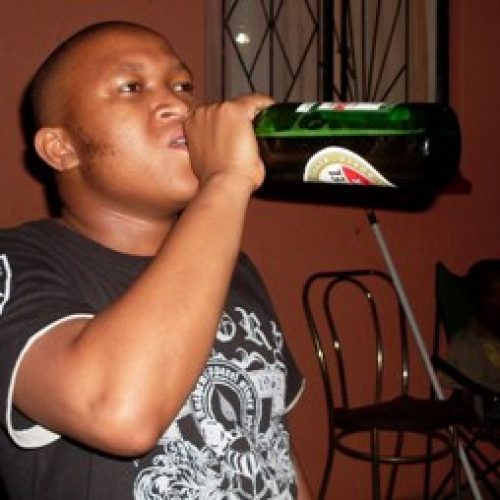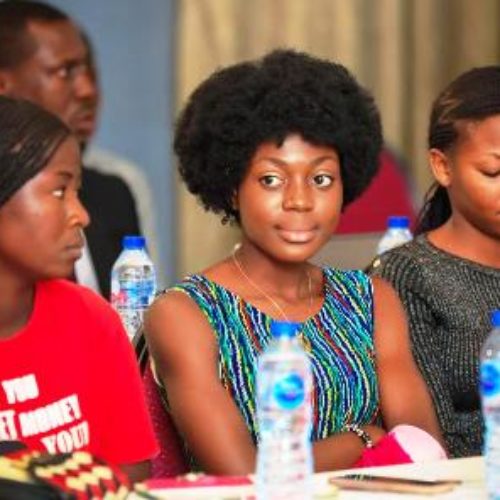How unplanned births leave Nigerian women on the brink of death
While it is worrisome that many women in Nigeria become pregnant almost every year, what is more disturbing is the fact they carry these pregnancies between life and death – battling with one pregnancy-induced ailment or the other. Correspondent Marcus Fatunmole in this special report presents women who have to contend with different health issues in Abuja, following their failure to rest in-between pregnancies.
Benedicta Donald seems to have seen all the painful side of motherhood. As a young lady, she had dreamt to have one of the happiest and flourishing homes on earth. At 25, her dream became dim and was increasingly shattered by wrong pregnancy-related decisions she took.
The 28-year-old has had children six times, three of which were delivered through caesarian session. And, unfortunately, only one of those children lives.
She had her first child at the age of 18 in her home town, Anyiin , Logo Local Government area of Benue state. Like many of her contemporaries in Nigeria, her failure to acquire basic education hastens her journey to motherhood.
She and her husband, who works with one of the country’s security institutions, have since tried to raise six children within a decade of their union.
Today, while she desires to have at least one more child survive, she battles with health challenges she encountered in the process of childbearing.
“I have given birth six times, but five of these children have died. Only one (Precious) has survived. I gave birth to my first child naturally. But, the child died five months later. I left Benue for Abuja where I conceived and gave birth to my second and only surviving child in 2012 through operation.
“I have had CS (caesarian session) three times. After giving birth to my children within these 10 years, I discovered the children would fall sick and die. I also fall sick after every delivery. But, I always survive these ailments, while the child dies. This has kept me wondering why my child would keep dying.
“My babies would have running stomach and other health conditions. Every attempt I make to save them would end in futility, and they would die. Now, I have just only one child remaining out of six.
“As a mother who has seen all these agonies, I desire to have at least one more child. Because of the health challenges that I have had over these late children, people advised me to rest for a while, and I agreed. But, I still want to have a child more. I earnestly desire that God give me one child more,” she said.
According to her, she battles with post-partum haemorrhage, eclampsia, and serious stomach pain after delivery. “Even in pregnancy, it is a matter of life and death for me,” she said.
Mrs Donald is one of the millions of women in Nigeria who have been faced with diverse health challenge in the process of procreation, and after those children have been born.
Many of these women in their 30s and 40s have given birth more than 10 times, and in most cases, just about a half of those children survive.
Except they are assisted with prompt medical interventions, these women seem to be nearer their graves than live to see their next five birthdays. Checks by Nigerian Health Online revealed that for many mothers in Nigeria, childbearing could be a source of rejoicing or sorrowing, even when the child is alive and healthy.
Rabi Diko, 45, is a resident and indigene of Abuja. Now a widow, she has given birth 11 times. Only seven of the children are alive. Speaking with our correspondent, Mrs Diko said she had had seven males and four females. Two of her male and female children have died respectively.
The first child is 31 and the last is four. “I regret having many children. All through the period I gave birth to these children, I never visited hospital. So, I had all my children at home. But, in each of those pregnancies, it was real big problem for me. I kept having stomach pain and bled profusely after births.
“For me, my actions were taken in ignorance, as I would not want any female of reproductive age have more than three children. I know how painful it has been for me to manage these children and manage my health. There is no how you can compare the stomach of a woman who has 11 children with the one who has just three. Having less children is better than having many children.
“As a widow, I know what it means for me to feed my children. None of my children could to university for now because I don’t have the money to send them there. I have some of them now who has finished secondary school and are very brilliant, but as a peasant farmer, feeding them is my priority, and that is very difficult now,” she said.
Mrs Diko apparently looks older than her age. It appears the stress of giving birth and raising them have taken huge toll on her health. According to her, the only thing that now makes her go to hospital is her stomach ache. She also attributed the pain to childbearing.
Similarly, another resident in Abuja, Funmi Uchenna, currently laments her failure to space her children.
The couple married each other in 2011 and had their four children in six years. They had the first in 2012, second in 2014, third in 2016 and the fourth in 2017.
“I saw the worst shame of my life when I carried the fourth pregnancy,” the 39-year-old who works in a private school along the Airport Road said. “I lived each day with the shame and sickness that accompanied the pregnancy,” she added.
“One day, when my tummy began to protrude, my six-year-old daughter asked me: ‘mummy, again?’ Are you are carrying a baby again?’ I felt terribly bad within me. One would not expect a child of that age to know that her mother was pregnant when the last baby had not yet crawled.
“My first child knew her younger sister had not been crawling, so to see me with a swollen tummy was a great surprise to her. At the time, sincerely, I was terribly sick, and everyone who saw me knew that all was not well with me.
“I looked frail and sad. Nothing in the world delighted me. I kept battling high blood pressure. I would be at the hospital for antenatal and at the same time to treat myself of ailments. What compounded my problem was that I was using my last baby to cover my pregnancy. I was always strapping her to my back so that people would not know I was pregnant. So, you can imagine what I passed through. As a school teacher, I didn’t want people to know I was pregnant, and I had to care for the three girls without a house help. My life was at the time miserable, and I regretted my action.
“What really made me cry more was that I did family planning. My family is on the NHIS, so I quickly did family planning after my second child. I was the one who made the thing fail when I became pregnant for my third child, and I was still responsible for its failure at the fourth time.
“My husband had warned me never to conceive again after our third child. I thought it was a joke because we only had girls. His family had said so many bad things about me, and he too was being discriminated against by his family. He was no longer consulted in family matter because all our children were girls.
“But, now I thank God, I have a boy. And, I have called it an end to children. I have had enough sicknesses related to child-bearing. Name it: high-blood pressure, post-partum haemorhage, eclampsia and the likes. My biggest challenge now is high blood pressure. That is what I really battle with. I never had high BP until I began to have baby,” she added.
Another mother, Halia Muhammad, lives with her children in a makeshift home at the Central Area in Abuja. She is 20 years and has four children. She began her journey to motherhood at the age of 15.
An indigene of Kaduna state, she had had two children before her present twins which she was delivered of through caesarian session.
“I am sick, but I am more concerned with my one-month-old twins who have not lived in a safe place since they were born,” she told our correspondent.
“I had the twins at the University of Abuja Teaching Hospital, Gwagwalada. I could not pay for their bills which was N150,000 naira. But some church pople came and helped me pay the bill.
“Since I left the hospital, I have been battling with my health, but the babies are of greater concerns to me. I know I am very young to have these four children, but my priority is to see them and myself alive,” she said.
She added: “It is always good for young women to wait till they are mature before carrying pregnancy. The pain, especially for poor people like us, is always much. Today, I battle to cater for my children and I do not have money to cater for myself.
Mrs Muhammed said she came to meet her husband at the location because they could not afford the cost of accommodation in Abuja.
Speaking with our correspondent on need for families, especially mothers to space their children, Director, Family Health, Federal Ministry of Health, Dr Adebimpe Adebiyi, said: “I can speak from two perspectives, the perspective of a health professional and a perspective of a woman, a mother who has experience in child-bearing. The first one as a health Director, Family Health Department, Federal Ministry of Health, I know that childbirth spacing, family planning is not just about the number of children that a woman or family wants to have, but the health of the mother and the child is paramount. You need to ensure that the woman is healthy, her body can carry the stress of pregnancy.
“Pregnancy is not a disease but it is stressful. You put a lot into it. It takes a lot from your body, and you must be prepared for it. The woman, your organ must be working well, your blood must be at the optimal level, your health, blood pressure, blood sugar, your health parameter must just be optimal before you venture into pregnancy. That is what averts unnecessary, untoward programme outcomes namely maternal mortality, morbidity.
“Some people, maybe they never knew their health status before pregnant, they develop some complications during pregnancy, which if that had been managed well before they get pregnant and they are monitored, they will not have it lead to maternal mortality.
“Being a mother also, I know that when you have stress from pregnancy, it will stress your pocket, it will stress the pocket of the family. As far as I am concerned, if you want to get out of poverty, don’t have too many children. I know that it is not easy financially to raise children. Apart from feeding them, clothing them, they will go to school. Nobody wants to have any child now and the child will be an illiterate. We see women professors now. We see women pilots now.
“In those days, they would tell you that you could be having them. Some people because they have a male child, they just keep giving birth, six, seven children, when you could have just managed yourself with two or three or four maximum. And, you take care of them, even if you are a multi-millionaire. The fewer the children, the better for you.
“Emotionally, you will be able to take care of those children. You will give them the best of yourself, and they will enjoy you as a father or mother rather than having children that you cannot even cater for; children you don’t know their whereabouts. God is going to even ask you.”
Similarly, Chairman, Association for the Advancement of Family Planning (AAFP) and Focal Person for FP 2020 in Nigeria, Dr Ejike Oji, urged mothers to space their children and avert consequences of unplanned births.
He said family planning helps families to live their lives better, enjoy healthier and prosperous lives. “First of all, when we say family planning, what it means is not just the connotation. Family planning is being able to get drugs or do some sort of interventions to space your birth…
“The connotation we are trying to bring into family planning is the biggest conversation that is something better. But, let’s focus on what everybody knows as family planning. What it means is if you are a woman, you want to be alive and look after your children. There are certain pieces of information you must have on why women die in pregnancy and why the number of pregnancy and the spacing is important.
“Number one, at least in underdeveloped country like Nigeria, data show that any girl or woman that wants to start having a baby before the age of 15 is going to be in trouble in pregnancy. The reason is very obvious. A research was conducted by ‘Parker’ foundation. They are a group in Kenya. They came to Nigeria to do a comprehensive assessment of who is dying actually in pregnancy in terms of age it was found out that almost 70 percent of all maternal deaths were girls below the age of 18.
“What it means is that in Nigeria, if you are a woman or girl in Nigeria, don’t start having sex before the age of 18. The reason is simple, the reproductive health organs get matured after the age of 18. If you are going to have babies before then, you may have obstructed labour, that may rupture you uterus. You will die and the baby will also die.”
He said there are instances that the virginal could be too small for the baby to come out. If eventually the baby pushes through, it could damage the head of the woman’s bladder resulting in serious conditions such as the fistula, he stated.
He went further: “The second one is that any pregnancy that you space for minimum of two years before you have another one, it gives time for uterus to get back to almost the previous size. There is a lot of anaemia among our women in Nigeria. Most of our women are operating at a lower end of normal. Most of them are operating about one gramme low…
“Usually, after delivery, there is some acceptable blood loss due to the separation of placenta after delivery. What happens in the first instance, that might not be life-threatening. He said it is risky for women to have pregnancy with lower level of blood, that is as in some cases, getting pregnant when they have not recovered the blood lost from previous delivery.
“There is a lot of haemodilution because of the high pregnancy, what we call hyper-dynamic state of pregnancy, so a lot of haemo-dillution. Haemoglobin is the major thing for carrying oxygen. So, when the woman goes through the first pregnancy, if it is the normal bleeding, she comes out of it alive, but her haemoglobin will drop further.
“If she goes into the second pregnancy, just within a year, the body has not completely recovered. Remember, she was likely malnourished before, and if you don’t correct that nutritional status of that woman before she went into pregnancy and all of that, the same set of food she was given is what she will continue to eat in terms of quantity and quality.
“What will happen is that if she goes into the second pregnancy without fully recovering, even the normal bleeding women have after delivery, for that particular woman, it becomes dangerous for her. These are some of the facts people do not really understand when we tell women ‘space your children,’ they think they are strong and healthy enough.”
He went further: “When a woman starts approaching 40 and start having a baby, in Nigeria, she is just looking for trouble because all the complications in pregnancy, eclampsia, the woman will some bit of problems in pregnancy. That is why the advice to give to women, if you want to have your baby, the best age to have baby is between and 30…There is a lot of pressure on our women to keep producing, especially on issue of sex selection.
“Unfortunately, because of some cultures in our country, if she is producing girls all the time, the in-laws will urge their son to go and marry another woman. They will say his wife cannot produce boy, not knowing that the fault is with their son.
“These are the reasons our women die. The other issue is that every time, the attention we pay, when it comes to the issue of pregnancy when the woman is co-habiting with the man, say in a legal marriage. Those are the people we target primarily that they should have family planning services. I just told you, 70 percent of the deaths are from women between the age of 18 and below. What this tells you is that the second highest killer of our women in Nigeria is the complications of unsafe abortion.
“If you look at the death also, who is dying from complications of abortion? These are women majorly who are not married. They have a sexual relationship with their friends and they got pregnant. They don’t want to bring shame to their family. They don’t discuss with their parents. Their parents have made themselves people that should not be discussed. So, they go to their peers and they do abortion…
“The other thing is what I call reversed psychology. The failure of contraception of family planning brings up another major issue. For any woman to go to abort a pregnancy she does not want, the simple reason was because the woman was not able to manage her fertility. She did not have good family planning services. Otherwise, she would have known that the first sex you have with a man, you could become pregnant. So, that woman could have had adequate family planning services to know she could get pregnant and take contraception…
“The failure of contraception is also bringing a bigger problem for women in Nigeria now because the number one cause of infertility is complication of unsafe abortion.”
About author
You might also like
Revealed! How excessive alcohol damages your organs
Causes memory loss, you may even forget your name You may become disoriented, delirious or suffer hallucinations, says Family Health Book According to medical experts, very moderate consumption of alcohol may
NEITI releases 2015 compliance ranking for oil and gas industry
Board appoints auditors ABUJA – The on-going Independent Audit of the Oil and Gas Industry covering 2015 by the Nigeria Extractive Industries Transparency Initiative (NEITI) has recorded 94% compliance by
International Day of the Girl Child: Girls, civil rights groups speak out
There is national confusion about reproductive health, rights of females in Nigeria, and we bear the brunt, they say There is so much gender-based violence, stigmatization, and stereotyping against girls,









0 Comments
No Comments Yet!
You can be first to comment this post!